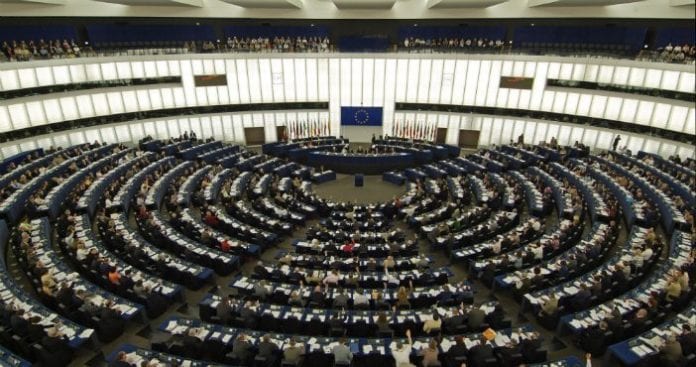 In an overwhelming vote, the European Parliament passed a package of telecom reforms that includes ending roaming charges in the region by Dec. 2015 and adopting strong — and controversial — net neutrality rules.
In an overwhelming vote, the European Parliament passed a package of telecom reforms that includes ending roaming charges in the region by Dec. 2015 and adopting strong — and controversial — net neutrality rules.
“Today is an excellent day for Europeans,” said Natalie Kroes, the VP of the European Commission who originally proposed the “Connected Continent” regulations.
The package of regulations, which was first introduced last September, aims to bring the EU closer to a single telecom market. It will end roaming charges and enact a form of net neutrality in attempt to guarantee “an open Internet” by banning blocking and degrading of content. The legislation also coordinates spectrum licensing for wireless broadband and seeks to make Internet and broadband contracts more transparent for consumers.
On the controversial net neutrality piece, the parliament took up amendments pushed by some of the more liberal members tightening language about any exception for “specialized services.” The original language was cited by some critics as a loophole for telecoms.
Consumer advocacy groups hailed the vote as a victory. “We are very positive about the direction the parliament took today,” said Jens Henrik-Jeppesen, director of European Affairs for the Center for Democracy and Technology.
Henrik-Jeppesen cautioned, however, that the issue is more complicated than many reports have made out. “The vote today between the two alternate texts was not about saving or destroying the Internet. It’s more complex and nuanced than that,” he said. “But we think the Parliament chose the better of the two versions.”
Prior to the vote, four telecom associations banded together to oppose the net neutrality amendments. Following the decision, the GSMA, a mobile industry trade association, issued a statement reiterating that this policy would “reduce consumer choice and weaken competitiveness” in Europe.
“For mobile to fulfill [its] potential, network operators must be able to develop services that meet the needs of consumers and charge different prices for differentiated products. This is also a key driver for the high network investment needed to meet Europe’s connectivity challenge and underpin growth,” said Anne Bouverot, director general at GSMA.
The measures come after current rules had been in-force for more than five years, said Matthew Howett, head of Ovum’s telecom regulation practice.
“The question now is whether operators feel they can work within the scope of the regulation to offer the services they plan to – a last minute lobbying effort to remove some of the wording of what constitutes such services suggests not,” Howett said. “The fear exists around whether even basic (and generally accepted), forms of traffic management will be permissible under the commissioner’s vision for an ‘open Internet.’”
The rules will now be subject to further scrutiny by the Parliament and the Council of Ministers and Howett said lobbying efforts will only intensify.”
The issue of defining net neutrality has been a point of contention in the industry with carriers on one side, seeking a good return on their expensive network investments, and content providers such as Netflix and Google on the other side, hoping to provide high-use services like video streaming without substantial extra costs or connection speed problems.
In between is the consumer who just wants services at a good speed and for a reasonable cost. And that’s what the industry should focus on, according to Ericsson CTO Ulf Ewaldsson. “The best investment in networks is what will make new services and new possibilities happen in a networked society,” Ewaldsson said in an interview with RCR Wireless News at the recent Mobile World Congress event. (Watch the entire interview here.) “It is a continuous hammering to get networks better and better to make use of all of these technologies. Why? Because of the traffic flow, because of the enormous devotion that we have from users who benefit it and like it.”
Net neutrality has been taken up in Brazil, and the United States has seen its share of battles with a court recently overturning the FCC’s net neutrality rules. In the EU, currently only the Netherlands and Slovenia have enacted formal net neutrality legislation.
The vote on Thursday was one major step. Now the package goes to the EU member states. Final agreement is expected by the end of the year.
“This is not the end of the story, obviously,” said Henrik-Jeppesen.
Need more European telecom news? Have a little bird tell you all about it. Follow me on Twitter!

